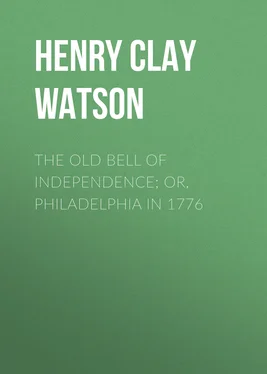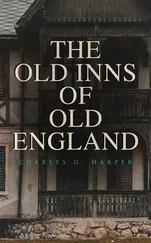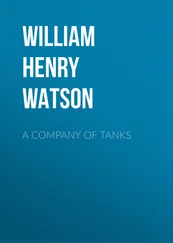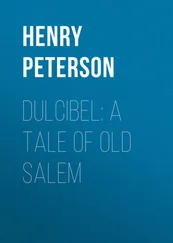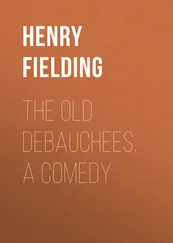Henry Clay Watson - The Old Bell of Independence; Or, Philadelphia in 1776
Здесь есть возможность читать онлайн «Henry Clay Watson - The Old Bell of Independence; Or, Philadelphia in 1776» — ознакомительный отрывок электронной книги совершенно бесплатно, а после прочтения отрывка купить полную версию. В некоторых случаях можно слушать аудио, скачать через торрент в формате fb2 и присутствует краткое содержание. Жанр: foreign_prose, История, foreign_edu, foreign_antique, на английском языке. Описание произведения, (предисловие) а так же отзывы посетителей доступны на портале библиотеки ЛибКат.
- Название:The Old Bell of Independence; Or, Philadelphia in 1776
- Автор:
- Жанр:
- Год:неизвестен
- ISBN:нет данных
- Рейтинг книги:3 / 5. Голосов: 1
-
Избранное:Добавить в избранное
- Отзывы:
-
Ваша оценка:
- 60
- 1
- 2
- 3
- 4
- 5
The Old Bell of Independence; Or, Philadelphia in 1776: краткое содержание, описание и аннотация
Предлагаем к чтению аннотацию, описание, краткое содержание или предисловие (зависит от того, что написал сам автор книги «The Old Bell of Independence; Or, Philadelphia in 1776»). Если вы не нашли необходимую информацию о книге — напишите в комментариях, мы постараемся отыскать её.
The Old Bell of Independence; Or, Philadelphia in 1776 — читать онлайн ознакомительный отрывок
Ниже представлен текст книги, разбитый по страницам. Система сохранения места последней прочитанной страницы, позволяет с удобством читать онлайн бесплатно книгу «The Old Bell of Independence; Or, Philadelphia in 1776», без необходимости каждый раз заново искать на чём Вы остановились. Поставьте закладку, и сможете в любой момент перейти на страницу, на которой закончили чтение.
Интервал:
Закладка:
"The bold and fearless Wayne was there; the undaunted Pulaski, and the whole-hearted Kosciusko; and they bowed their heads in reverence to Him in whose presence they were worshipping.
"Never beneath the vaulted dome of the stately temple—never from the lips of the eloquent divine—was seen such a congregation, or was heard such a discourse, as on that September evening, from that humble old man, with his grey locks streaming in the wind.
"With a firm, clear voice, that re-echoed to the distant hills, he announced his text:—
'They that take the sword shall perish by the sword.'
Then, straightening himself to his full height, and his eye beaming with a holy feeling inspired by the time and place, he commenced:—
"' They that take the sword shall perish by the sword.'
'Soldiers and Countrymen:
We have met this evening perhaps for the last time. We have shared the toil of the march, the peril of the fight, the dismay of the retreat—alike we have endured cold and hunger, the contumely of the internal foe, and outrage of the foreign oppressor. We have sat, night after, night, beside the same camp-fire, shared the same rough soldiers' fare; we have together heard the roll of the reveille, which called us to duty, or the beat of the tattoo, which gave the signal for the hardy sleep of the soldier, with the earth for his bed, the knapsack for his pillow.
'And now, soldiers and brethren, we have met in a peaceful valley, on the eve of battle, while the sunlight is dying away behind yonder heights—the sunlight that, to-morrow morn, will glimmer on scenes of blood. We have met, amid the whitening tents of our encampment,—in times of terror and of gloom have we gathered together—God grant it may not be for the last time!
'It is a solemn moment. Brethren, does not the solemn voice of nature seem to echo the sympathies of the hour? The flag of our country droops heavily from yonder staff; the breeze has died away along the green plain of Chadd's Ford—the plain that spreads before us, glistening in the sunlight; the heights of the Brandywine arise gloomy and grand beyond the waters of yonder stream, and all nature holds a pause of solemn silence, on the eve of the uproar and bloodshed and strife of to-morrow.'
"The propriety of this language was manifest. Breathless attention was pictured upon every countenance, and the smallest whisper could be distinctly heard. Pausing a moment, as if running back, in his mind's eye, over the eventful past, he again repeated his text:—
"'They that take the sword shall perish by the sword.'
'And have they not taken the sword?
'Let the desolated plain, the blood-soddened valley, the burnt farm-house, blackening in the sun, the sacked village, and the ravaged town, answer; let the whitening bones of the butchered farmer, strewn along the fields of his homestead, answer; let the starving mother, with the babe clinging to the withered breast, that can afford no sustenance, let her answer; with the death-rattle mingling with the murmuring tones that mark the last struggle for life—let the dying mother and her babe answer!
'It was but a day past and our land slept in peace. War was not here—wrong was not here. Fraud, and woe, and misery, and want, dwelt not among us. From the eternal solitude of the green woods arose the blue smoke of the settler's cabin, and golden fields of corn looked forth from amid the waste of the wilderness, and the glad music of human voices awoke the silence of the forest.
'Now! God of mercy, behold the change! Under the shadow of a pretext—under the sanctity of the name of God—invoking the Redeemer to their aid, do these foreign hirelings slay our people! They throng our towns; they darken our plains; and now they encompass our posts on the lonely plain of Chadd's Ford.
"The effect was electric. The keen eye of the in-trepid Wayne flashed fire. The neighboring sentinels, who had paused to listen, quickened their pace, with a proud tread and a nervous feeling, impatient for vengeance on the vandal foe.
"Gathering strength once more, he checked the choking sensations his own recital had caused, and continued:
"'They that take the sword shall perish by the sword.'
"Brethren, think me not unworthy of belief, when I tell you that the doom of the Britisher is near! Think me not vain, when I tell you that beyond the cloud that now enshrouds us, I see gathering, thick and fast, the darker cloud and the blacker storm of a Divine retribution!
'They may conquer us on the morrow! Might and wrong may prevail, and we may be driven from this field—but the hour of God's own vengeance will surely come!
'Ay, if in the vast solitudes of eternal space, if in the heart of the boundless universe, there throbs the being of an awful God, quick to avenge, and sure to punish guilt, then will the man, George of Brunswick, called king, feel in his brain and in his heart the vengeance of the Eternal Jehovah! A blight will be upon his life—a withered brain, an accurst intellect; a blight will be upon his children, and on his people. Great God! how dread the punishment!
'A crowded populace, peopling the dense towns where the man of money thrives, while the labourer starves; want striding among the people in all its forms of terror; an ignorant and God-defying priesthood chuckling over the miseries of millions; a proud and merciless nobility adding wrong to wrong, and heaping insult upon robbery and fraud; royalty corrupt to the very heart; aristocracy rotten to the core; crime and want linked hand in hand, and tempting men to deeds of woe and death—these are a part of the doom and the retribution that shall come upon the English throne and the English people!'
"This was pronounced with a voice of such power, that its tones might have reached almost to the Briton's camp, and struck upon the ear of Howe as the prophetic inspiration of one whose keen eye had read from the dark tablets of futurity.
"Looking around upon the officers, he perceived that Washington and Lafayette had half risen from their seats, and were gazing spell-bound at him, as if to drink in every word he uttered.
"Taking advantage of the pervading feeling, he went on:—
"'Soldiers—I look around upon your familiar faces with a strange interest! To-morrow morning we will all go forth to battle—for need I tell you that your unworthy minister will march with you, invoking God's aid in the fight?—we will march forth to battle! Need I exhort you to fight the good fight, to fight for your homesteads, and for your wives and children?
'My friends, I might urge you to fight, by the galling memories of British wrong! Walton—I might tell you of your father butchered in the silence of midnight on the plains of Trenton; I might picture his grey hairs dabbled in blood; I might ring his death-shriek in your ears. Shelmire—I might tell you of a mother butchered, and a sister outraged—the lonely farm-house, the night assault, the roof in flames, the shouts of the troopers, as they despatch their victim, the cries for mercy, the pleadings of innocence for pity. I might paint this all again, in the terrible colors of the vivid reality, if I thought your courage needed such wild excitement.
'But I know you are strong in the might of the Lord. You will forth to battle on the morrow with light hearts and determined spirits, though the solemn duty—the duty of avenging the dead—may rest heavy on your souls.
'And in the hour of battle, when all around is darkness, lit by the lurid cannon glare and the piercing musket flash—when the wounded strew the ground, and the dead litter your path—then remember, soldiers, that God is with you. The eternal God fights for you—He rides on the battle cloud, He sweeps onward with the march of the hurricane charge—God, the Awful and the Infinite, fights for you, and you will triumph.'
Читать дальшеИнтервал:
Закладка:
Похожие книги на «The Old Bell of Independence; Or, Philadelphia in 1776»
Представляем Вашему вниманию похожие книги на «The Old Bell of Independence; Or, Philadelphia in 1776» списком для выбора. Мы отобрали схожую по названию и смыслу литературу в надежде предоставить читателям больше вариантов отыскать новые, интересные, ещё непрочитанные произведения.
Обсуждение, отзывы о книге «The Old Bell of Independence; Or, Philadelphia in 1776» и просто собственные мнения читателей. Оставьте ваши комментарии, напишите, что Вы думаете о произведении, его смысле или главных героях. Укажите что конкретно понравилось, а что нет, и почему Вы так считаете.
